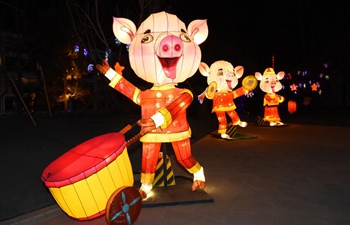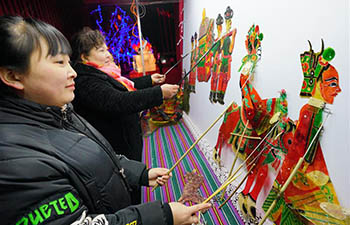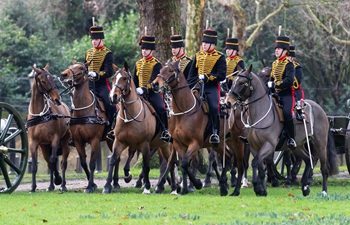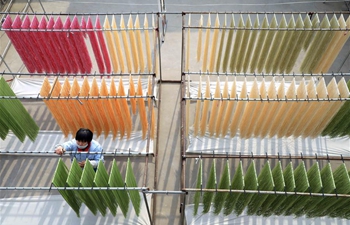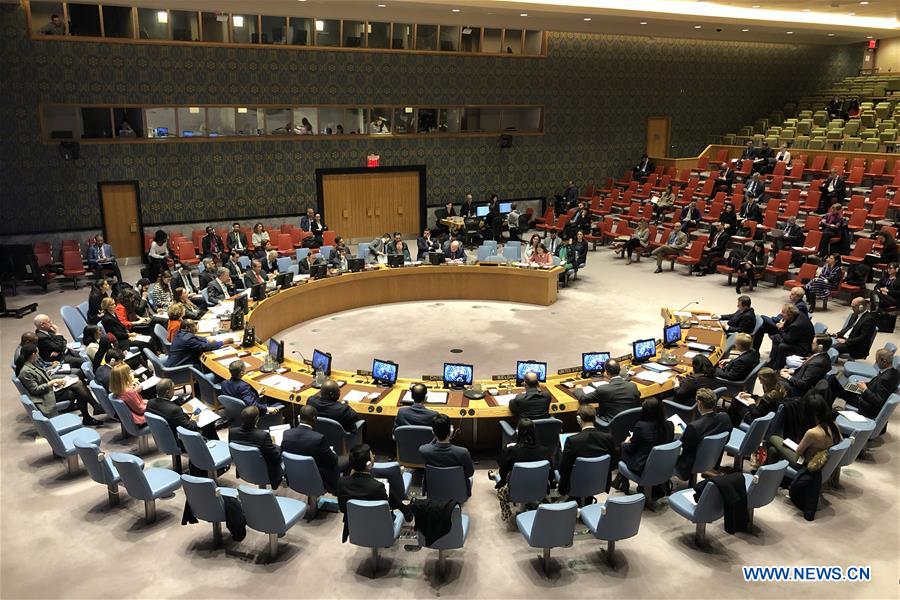
Photo shows the United Nations Security Council holding a meeting on the situation in Kosovo, at the UN headquarters in New York, Feb. 7, 2019. The United Nations Security Council agreed Thursday to hold fewer meetings over the Kosovo issue instead of meeting on the current quarterly basis. (Xinhua/Li Muzi)
UNITED NATIONS, Feb. 7 (Xinhua) -- The United Nations Security Council agreed Thursday to hold fewer meetings over the Kosovo issue instead of meeting on the current quarterly basis.
The council will hold three meetings, including Thursday's session, on Kosovo in 2019, and two annually from 2020 onward.
Whether to discuss Kosovo on Thursday was a sticking point when the council members were working on this month's program, which failed to be adopted on Feb. 1.
Equatorial Guinean Ambassador Anatolio Ndong Mba, president of the council for February, said the program will come out later this month.
The frequency of reporting on Kosovo has been a contentious issue in the council for some time. The United States prefers the issue be discussed less frequently, while Russia wants to maintain the quarterly cycle.
The decision came amid stalled talks between Belgrade and Pristina.
Zahir Tanin, the UN secretary-general's special representative for Kosovo, said Thursday that the atmosphere for resuming the dialogue has been exacerbated.
He told the Security Council of "a tendency to disrupt rather than de-escalate" the tension between Belgrade and Pristina.
Tanin also underlined the importance of the council's role in dealing with the issue, saying that reducing tensions, enhancing mutual trust and removing obstacles to the dialogue are "crucial" to the region's stability.
Dominated by ethnic Albanians, Kosovo unilaterally declared independence from Serbia in 2008, which has not been recognized by Belgrade.
The two sides committed to a European Union-mediated dialogue with the signing of the Brussels agreement in 2013.
The negotiations stopped last December, after Pristina's decisions to increase the tariff on goods imported from Serbia and Bosnia-Herzegovina from 10 to 100 percent, as well as to adopt three draft laws aimed at strengthening the role and capacity of the Kosovo Security Force.




